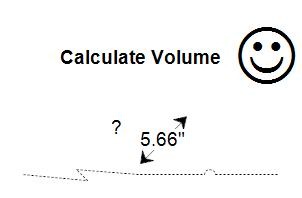One of the most common myths in SEO revolves around the correlation of keyword density with ranking. In the olden days, it was believed that the more key terms you place in an article, the higher your search engine rank will be. While key phrases and terms are important ranking, further studies tell us that perhaps too much may not be such a good thing.
Key terms help you pick up your target audience and help in search engine ranking. However, their frequency must come naturally, as placing them excessively within an article makes your website look spammy and could therefore result to penalties.
Image From: http://www.searchenginepeople.com/wp-content/uploads/2008/02/keyword-density-calcultation.jpgKey terms help you pick up your target audience and help in search engine ranking. However, their frequency must come naturally, as placing them excessively within an article makes your website look spammy and could therefore result to penalties.
Incorporating them wisely in the title and content makes your page relevant to search engines like Google and Bing. But here’s the catch: keywords do not influence ranking itself. Research tells us that they do not even pass as a tertiary influence to algorithms for ranking – quite contrary to the keyword density myth.
What actually determines if your site will appear on the first or second page of the search results is the keyword weight, not the frequency. The weight identifies how important your key phrases are in relation to their context and the index content. There are three factors that affect the weight: local weight, or the frequency of the term within the file; global weight; and normalization. These are all very technical terms, and there are lots of SEO Information out there that can help clarify how the whole SEO ranking really works.
In addition, the relevance of each term in your articles and posts add up to your ranking score. How can you be relevant? Reach out to more people. Relevance is identified by the number of people sharing your website or webpages on social media channels as well as how many followers you have and how many individuals link to your site.
The bottomline is, key terms are essential, but you have to know how to make them come out naturally within a page. While the olden SEO myth tells you that density is relevant to your ranking, we have come to know that more than their frequency in a page, what really matters is that you find appropriate techniques so that these terms appear more than once in your document, but remain relevant too to your entire content, not just some random words placed there for the sake of it.
Cliché as it may sound, the best way to still attain higher and stable search engine ranking is to write high quality, engaging content that users would be interested to link up to. The more readers there are linking to your site and posting meaningful comments in your comments box, the greater your chances are of achieving higher ranking.

